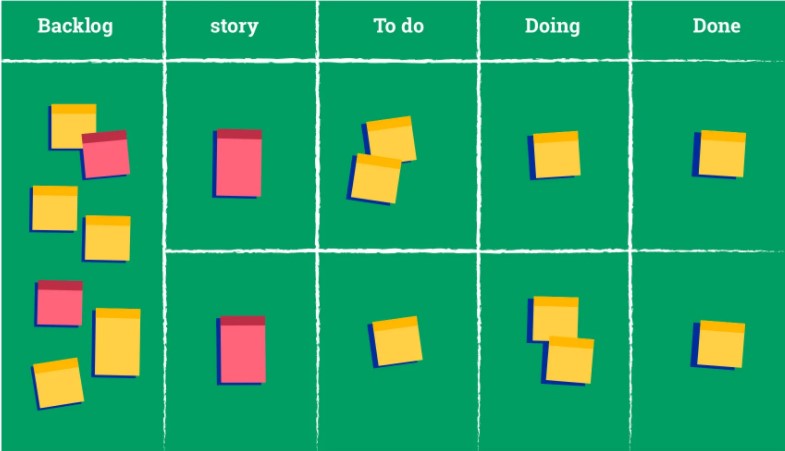So today’s article is all about planning. I think we can all use some tips to navigate through a stressful exam/paper period at the end of the third period. Since I’m not one of the most organized people, I was especially suited to dig up some tips and tricks. I’m still learning to get a better overview of my daily work schedule and failing miserably so far. I should have finished this article yesterday so… This article, therefore, isn’t what you call ‘practice what you preach’, but I hope you will find some of it valuable all the same. If not, your takeaway from this article should be: “Don’t do as I do.”
- Plan ahead
This may be an open door, but it is important to make a habit of planning ahead. When you perform the task of planning on specific routinized moments during the day, you are more likely to stick to your planning according to James Clear, author of Atomic Habits. I therefore write down all my activities and to-do lists for the next day on a small piece of paper before I go to bed. When I wake up, I immediately know what I’m up against and can start to work right away. A side benefit is that when you write things down before drifting off to sleep, they won’t bother you that much any longer.
- Divide and conquer
Some tasks seem impossible to overcome. Ever noticed you procrastinate big difficult tasks and finish your short and easy ones first? Our brain is wired to value immediate gratification – a.k.a. it is lazy as f*ck – and that’s why we are mainly focussed on easy goals. We like checking boxes. In order to still finish tasks that seem impossible, it might be helpful to split them up in manageable chunks. Write those down on a piece of paper or on your desktop. Each time you finish one small part of the task you can check them off. Your brain will receive a small amount of dopamine that makes you feel productive and keeps you going. Starting a new course in the fourth period? Before the course starts, write down every single task you will have to do during those weeks. Getting an overview of all those small components really helps you to actually do them.
- Is it important?
A last tip is to make priorities. I find a scrum board really helpful to do so. A scrum board consists of three rows: to do, doing and done. Those categories speak for themselves, I think. You can either do this digitally or physically. For every task you have to define its importance. You have to decide whether something is urgent or not and whether something is important or not. This creates four distinctive categories you can either label with a different color or other tag. Place all tasks in the to do row and start with the tasks that are urgent and important. Afterwards, focus on the ‘not so important but still urgent tasks’ and so on. If you finish your tasks, you can place them in the row that says ‘done’ (obviously) and get your instant gratification! At the end of the day, you can easily identify your productivity, what tasks are unfinished and which tasks still need to be done.
I hope you will find some of these tips useful or at least are willing to try them out. Every person is different so you will find that some methods will work for you and others won’t. Personally, I prefer physical to-do lists, while others prefer digital ones. With that being said, good luck during this busy period and don’t worry too much. If you are way too stressed, make sure to check our other articles on mental well being. For me it is time to hurry off for my exam…

